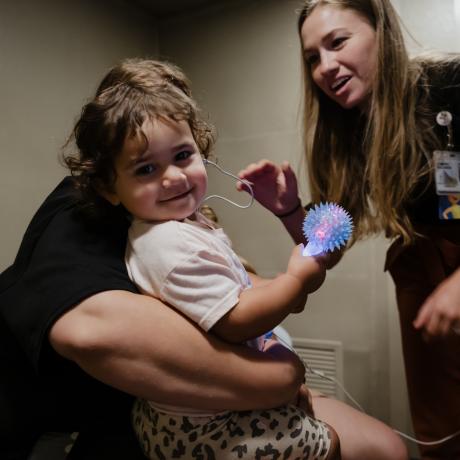Julie and Jeff really, really wanted to have children. Over five years, they went through six rounds of in vitro fertilization, which resulted in four miscarriages. Hope and heartbreak over and over again. It seemed that fate was against the idea of them being parents. But Julie didn’t want to give up. She did extensive research and found one drug they hadn’t tried, and they decided to make one last attempt at in vitro fertilization. And this time it worked. In fact, Julie was pregnant with twins, Austin and Garrett.
But it soon became clear that Austin was in trouble. He was smaller and growing more slowly than his brother. The obstetrician said Julie would likely miscarry Austin. It was a prospect Julie couldn’t face again, so she flew to Chicago to see a specialist in recurring pregnancy loss. That doctor did an ultrasound and said Austin’s gestational sac (the fluid-filled cavity surrounding the fetus) was too small. “She said it would be a hail Mary if he survived,” Julie says. “I remember crying on the plane going home, thinking that we were going to lose him, but then he just kept growing.”
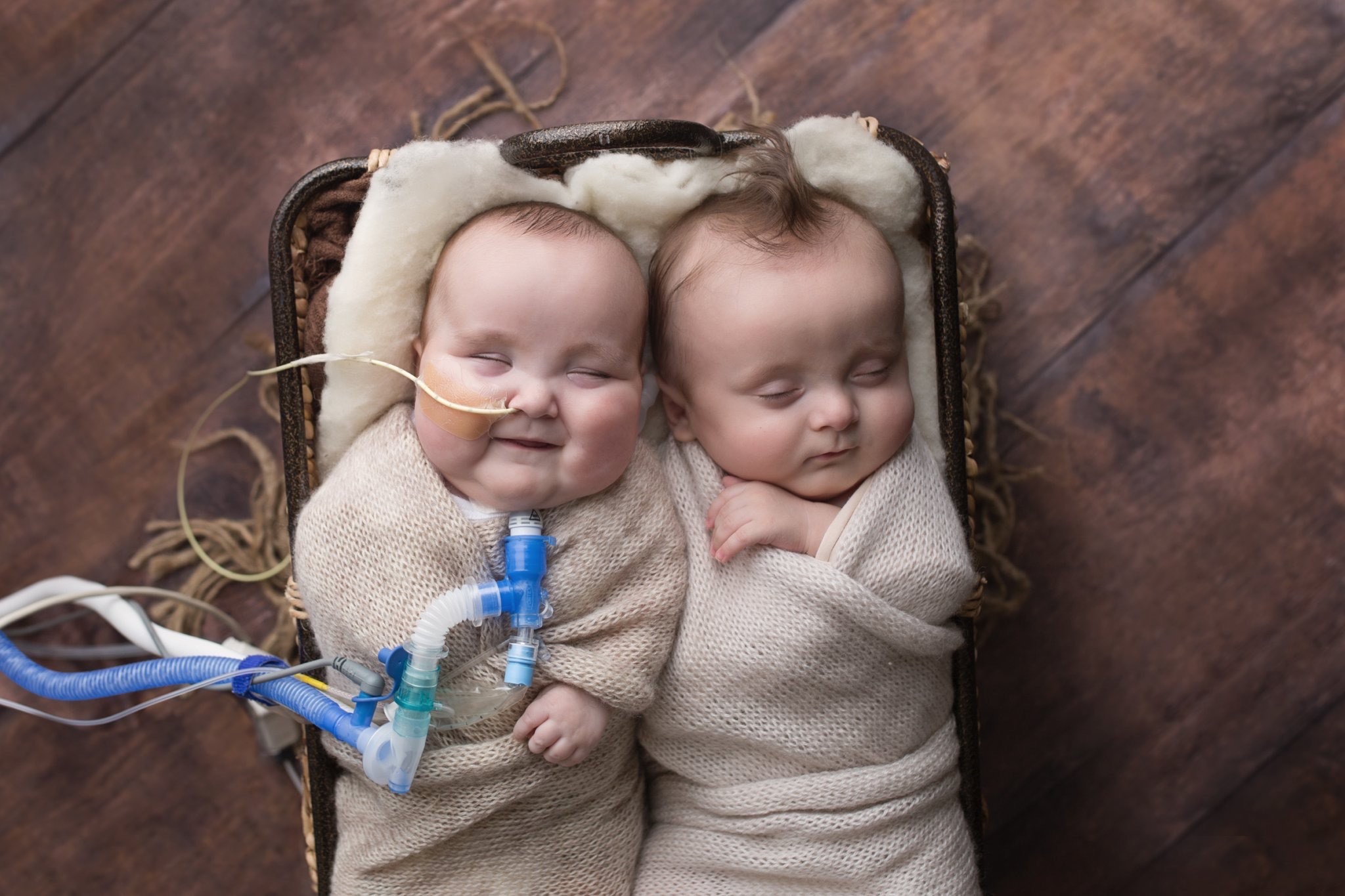
Not Willing to Accept Defeat
And that scenario—doctors telling Julie and Jeff that Austin wouldn’t survive and Austin defying the odds—became his theme. He survived week 10 and week 11, and just kept going until, at 21 weeks, his parents felt safe enough to throw a party and tell friends and family that they were having twins (something they had kept private until then). Five days later, at 22 weeks, Julie’s water broke. “We went to the hospital,” Julie says, “and they said that, statistically, I was most likely to deliver within 72 hours and lose both the babies. This was a really, really dark point. I remember sobbing the whole time and thinking we had done so much to get this far and now we were going to lose both babies.”
But again, the predicted disaster didn’t happen. The boys stayed inside for another week and then another. Finally, at 25 weeks, Julie gave birth, and the boys were taken to Connecticut Children’s Neonatal Intensive Care Unit (NICU), which is located at Hartford Hospital. And that’s where the ordeal really began.
“The next morning, the doctor came in around 8:00 A.M. and said that Austin had a grade-four brain bleed on one side, grade two on the other, and it meant he will have cerebral palsy,” Julie says. “We just crumbled and sobbed. It was one more unknown thing. What does that mean? Is that going to be for his whole life? Is he going to walk? Is he going to talk? Is he going to eat? Is he going to do any normal things? What will that mean for Garrett? Will we need to make our house wheelchair accessible? All those questions, just sort of spinning. But that wasn't enough for us to say, ‘We don't want that child anymore.’ I always felt like since his first heartbeat, he fought to be here. I just felt like he really wanted to be part of this world.”

Then there was the problem with Austin’s lungs. They were underdeveloped, even by the standards of a baby born at 25 weeks. So the clinical staff put him on ventilators to help him breathe. But because he was so fragile, the ventilators were blowing holes in his lungs. It was not a tenable situation. “We were called in several times to say goodbye,” Julie says. “That was really rough. At one point, we went out to grab food, and we were just sitting there planning his funeral, figuring out who would do the eulogy and where we would bury him. I remember being in the chapel at Hartford Hospital with one of my girlfriends, and I could hardly even breathe because I was sobbing so hard.”
Despite the dire situation, the clinical staff at the NICU were as determined to save Austin as he was to live. “I’ll never forget coming in one morning when Austin was dying and seeing Dr. Wolkoff at his bedside [Leslie Wolkoff, MD]. The man looked exhausted. I could tell that he had been called in overnight, and he said he had been with Austin for hours before they called us in. He was doing everything he could to save him.”
You Can Give the Gift of Life-Saving Care>>>
Julie, too, was doing everything she could to find solutions for Austin’s condition. She called her sister-in-law, who is a NICU nurse at UMass Memorial Medical Center in Worcester, Massachusetts, to get advice. Her sister-in-law told her about a jet ventilator that their hospital was using. It provides a very gentle pressure and appeared to be what Austin needed. But when Julie mentioned this to Austin’s doctors, they told her Connecticut Children’s didn’t have one, nor was the staff trained to use one. The next thought was to transfer Austin to Worcester, but he was too fragile to survive the trip. It seemed hopeless. “I'll never forget talking about this with Dr. Golioto [Annmarie Golioto, MD, Medical Director of the Hartford NICU]. I just broke down to her and said, ‘You know, it's not like we can just go make another kid.’ When I broke down, she was very compassionate. Then, two days later, we walked in, and the jet ventilator was there and there was a guy there training the staff. She made that happen. She had rented it. I'll never forget that feeling of hope that we had in that moment. That's what saved his life, that ventilator.”
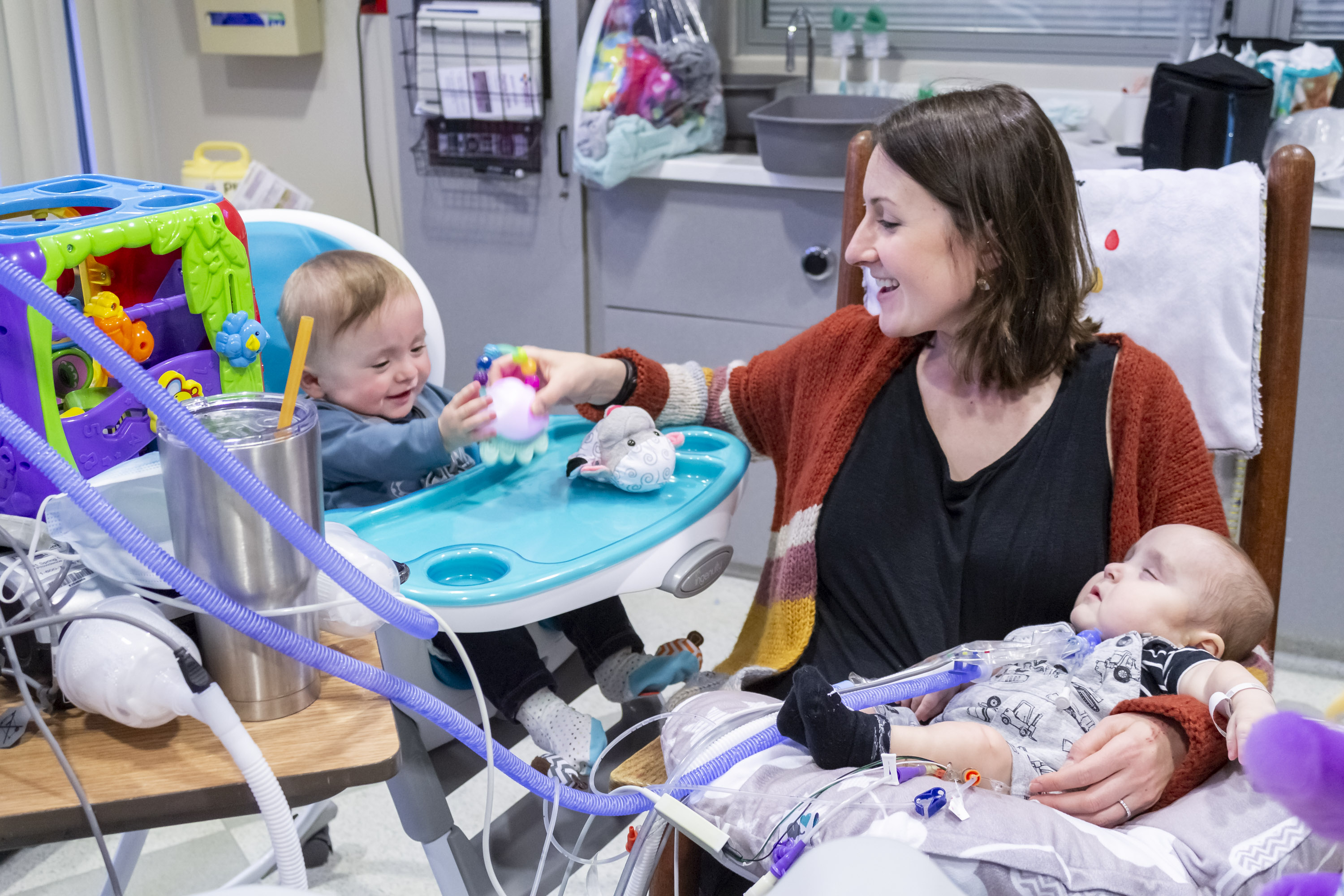
A Staggered Homecoming
During their NICU stay, both boys underwent several surgical procedures, including hernia repair for Garrett, the insertion of feeding tubes, and, for both boys, when they were two weeks old, heart surgery to repair patent ductus arteriosis. This is a condition where a fetal valve in the heart doesn’t naturally close after birth, so too much blood is going to the lungs. It was more than Julie thought she could take: “I said, ‘Are you people trying to kill me? You're going to do heart surgery on both my kids, and they don't even weigh two pounds?’”
Despite the many emergencies and procedures, the boys both began to thrive, and eventually they were ready to go home. Garrett went home first, at five months. Two days after Garrett went home, Austin had a tracheotomy and was transferred to the PICU. He was finally ready to come home just before his first birthday. It seemed like their long struggle was finally over.
To celebrate that long-awaited milestone, Julie and Jeff decided they could finally have a night out, their first since the boys were born. The night before Austin’s discharge, they went to a casino with family members and stayed overnight. The next morning, Julie drove to the hospital to pick up Austin and Jeff drove to his office at Travelers Insurance.
“When I got there,” Julie says, “they were doing an ultrasound on Austin and said, ‘Oh, we're just checking out some things.’ And I didn't really think anything of it, because they were always checking out things on him. Then the doctor said he wanted to meet to talk about some things in the conference room and that my husband should join us. That set off alarm bells in me. Anytime we ever had to go to a conference room, it was always for very terrible conversations. Nothing good ever comes out of the conference room. I asked Jeff if he could join us, and he asked if he could just call in. So I'm on the phone with him, walking down the hall and I see Dr. Moss coming to the conference room [Kerry Moss, MD]. We knew her because she was part of the palliative care team, and Austin was on palliative care when he was in the NICU. They were part of a lot of those difficult conversations that we had. So I'm on the phone with Jeff, and I said, “Oh no, palliative is coming. This is not going to be good.” We went in, and they told us Austin had a tumor on his liver.”

It seemed fate wasn’t done testing the St. George family.
Dr. Moss, in addition to being on the palliative care team, is an oncologist, and she took over Austin’s cancer care, which involved both chemotherapy and surgery. As with so much else in his life so far, chemo proved to be very challenging for Austin. He became very sick, a sickness that developed into sepsis. Yet again, Julie and Jeff had doctors telling them that Austin might not survive. And yet again, Austin defied the odds.
The surgery involved removing 70 percent of his liver in order to get all of the tumor. As though he hadn’t been through enough, Austin developed yet another problem, this time with his bile duct. And that required specialized surgery at Boston Children’s Hospital to remove the bile duct and attach his small intestine directly to his liver.
Then, finally, after 18 months in intensive-care units and a half-dozen life-threatening crises, Austin went home for the first time.
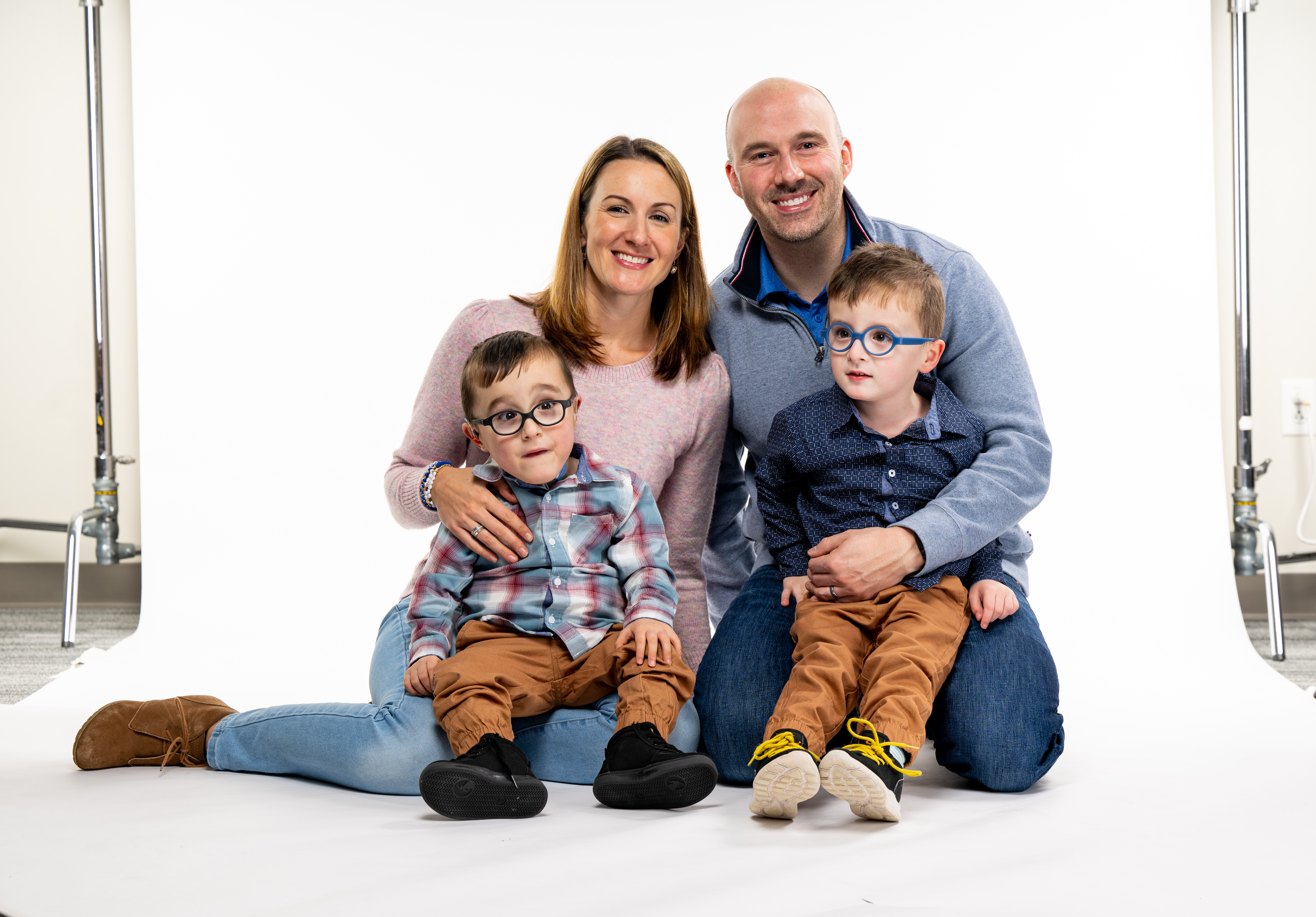
Today, Austin and Garrett have been home for about two years, and both boys are doing well in preschool. Garrett is full of energy with a tendency to be silly. He loves anything to do with trucks, trains, and construction vehicles. He likes taking things apart to figure out how they work and then putting them back together. His favorite foods are waffles, mac and cheese, and peanut butter and jelly sandwiches. Austin is lovable, warm, and a favorite with people at his preschool. He’s learning to live with cerebral palsy, and he has had some major improvements. “He uses both his hands,” Julie says. “He walks with the walker and braces. We're hopeful that he will walk independently at some point. He's still working on that. He cruises all along the furniture or he crawls. He climbs the stairs. He does a lot of things. He's just delayed, and part of that can be from being in the hospital in bed for 18 months, too. He works hard and he still has a long road ahead, and we still don't know what that will look like. But when he came home from the hospital, he couldn't even roll over. Now he is crawling and climbing and cruising. I wouldn't put anything by that boy.”
Explore Funding Priorities
Latest Articles
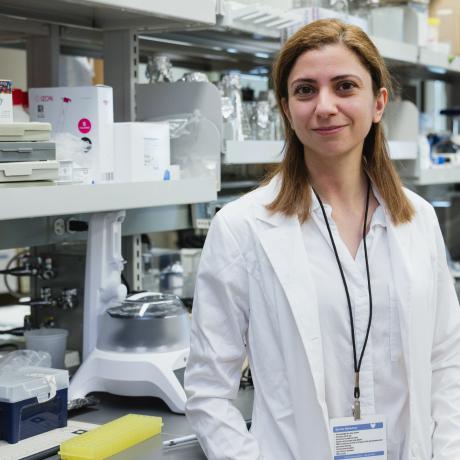
Beyond Stem Cells: Can We Help Premature Babies Heal Their Own Lungs?
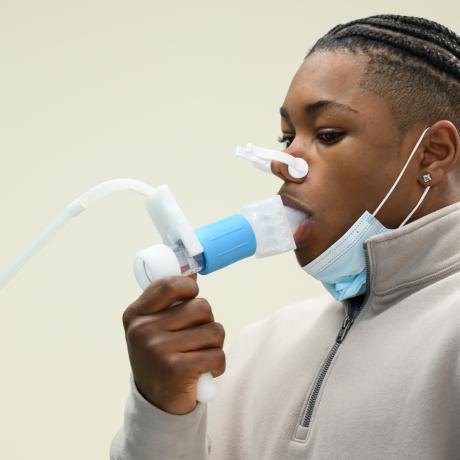
Revolutionizing Respiratory Care: New Advances Are Transforming Lives for PCD Patients
